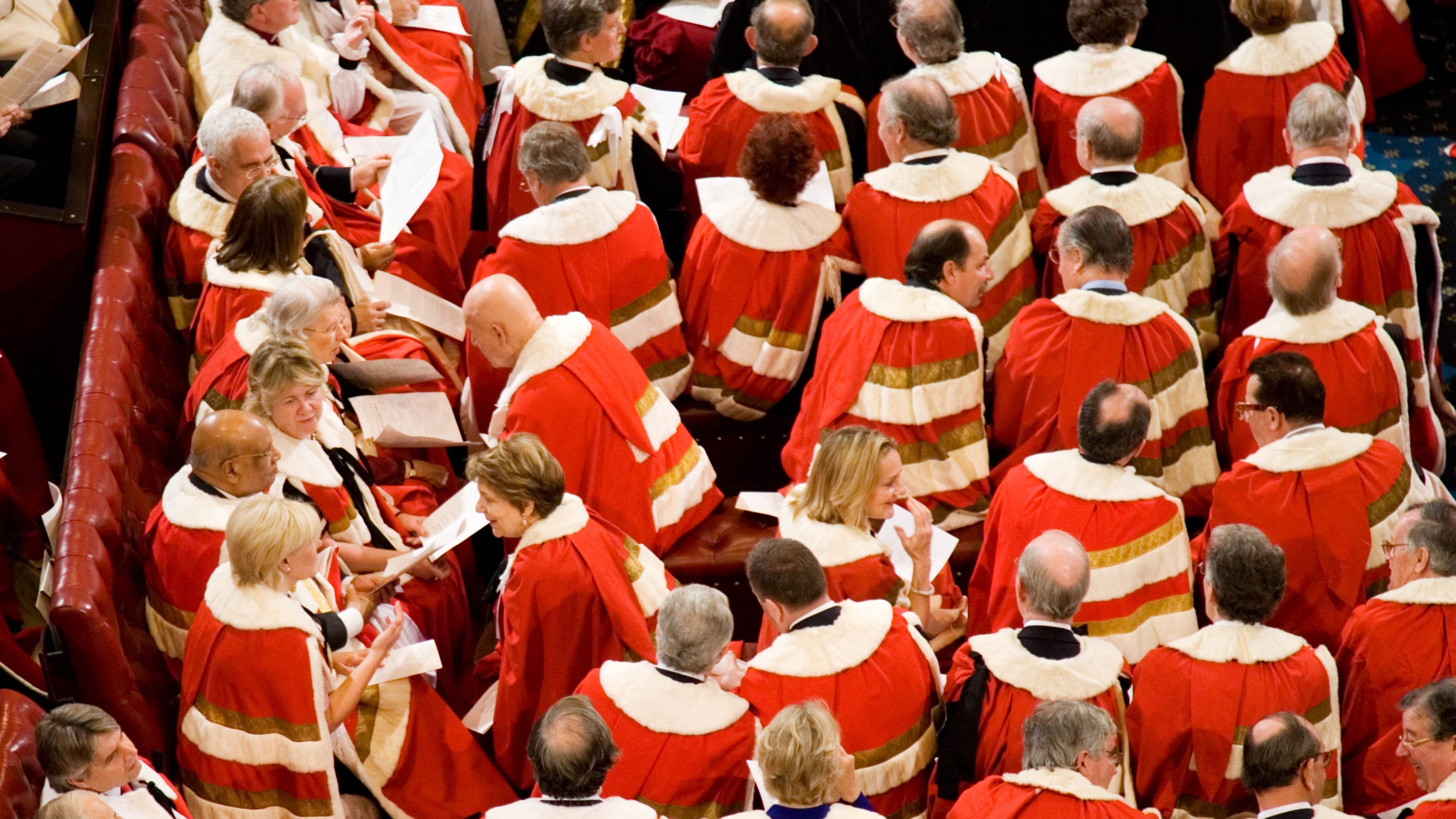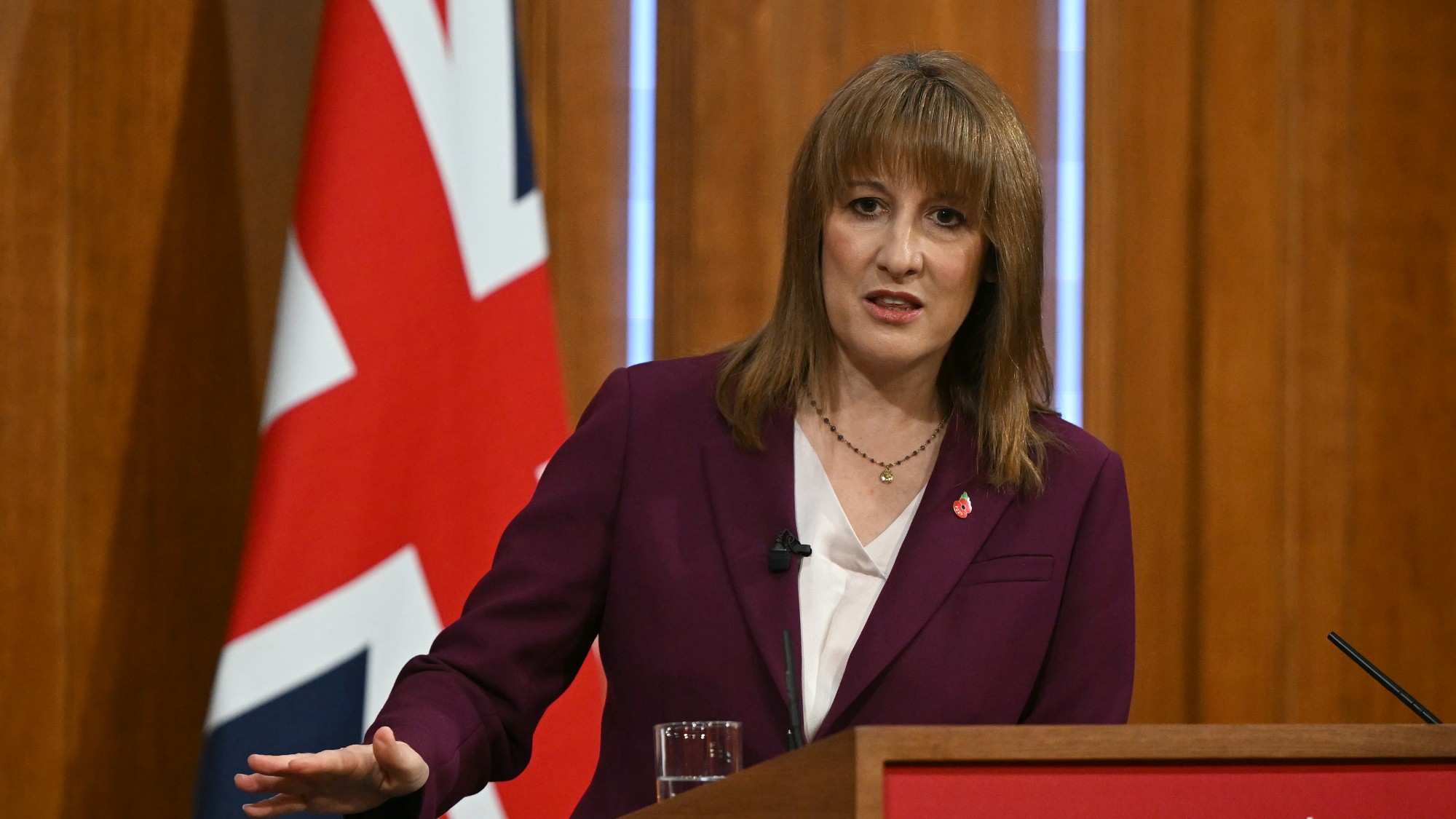The pros and cons of the House of Lords
Labour leader Keir Starmer would abolish House of Lords in his first term as prime minister

The long-running debate over Britain’s unelected upper chamber was reignited this month as Labour announced plans to abolish the House of Lords if the party wins the next general election.
Speaking to Sky News earlier this month, Keir Starmer said he hoped to abolish the Lords in his first term as prime minister, replacing it instead with an elected upper chamber.
The proposal forms part of Labour’s plans for a “New Britain” as outlined in a report commissioned by the Labour Party and headed by former prime minister Gordon Brown. It is one of several sweeping proposals for reform that could make their way into Labour’s next election manifesto.
The Week
Escape your echo chamber. Get the facts behind the news, plus analysis from multiple perspectives.

Sign up for The Week's Free Newsletters
From our morning news briefing to a weekly Good News Newsletter, get the best of The Week delivered directly to your inbox.
From our morning news briefing to a weekly Good News Newsletter, get the best of The Week delivered directly to your inbox.
“We’re going to get one shot at fixing our economy and fixing our politics and I want to make sure we get it exactly right,” Starmer told the broadcaster.
But Tory peer Philip Norton warned against “Big Bang reform”, arguing that such plans “often takes the form of displacement activity”, when he spoke to Times Radio. “The nation’s got problems, people must come up with constitutional reform because it’s a fairly simple, straightforward proposal, rather than actually getting down to the real issues.”
Here’s a look at some of the arguments for and against the upper House.
1. Pro: peers bring experience
Amid calls for the House of Lords to become an elected chamber in 2014, Peter Oborne argued that it actually worked remarkably well, throwing out what he called “populist measures introduced by governments determined to bolster their right-wing credentials”.
A free daily email with the biggest news stories of the day – and the best features from TheWeek.com
Writing for The Telegraph at the time, he said an elected House of Lords would never have the will or the courage to stand up against public opinion, and would deprive the public of the judgement of “very valuable” peers, such as retired generals, trade union leaders, academics and judges.
2. Con: undemocratic and no diversity
The UK has the world’s second largest decision-making body after China’s National People’s Congress. Campaigners such as the Electoral Reform Society argue that it is undemocratic that unelected peers should hold such sway in British politics.
All the main parties have pledged to cut the number of peers, and many politicians agree that hereditary peers should be phased out. Former Labour leader Ed Miliband previously proposed a wholly elected senate, with roughly proportionate numbers from Scotland, Wales, Northern Ireland and the English regions, instead of MP-style constituencies.
During the coalition years, the Lib Dems put forward proposals to halve the number of members and ensure that at least 80% of peers were elected, but the plans were abandoned after an agreement with Tory opponents failed to be reached.
3. Pro: constitutional check
The House of Lords has proved it is “willing to defeat ministers even on flagship and other significant pieces of legislation” in recent years, said Sonali Campion and Sean Kippin in The UK’s Changing Democracy: The 2018 Democratic Audit.
In turn, this has led to “somewhat greater checks and balances constitutionally and a little more scrutiny in the policy-making process”, they argued.
4. Con: accusations of cronyism
The current system makes it very hard to get rid of politicians from the Cabinet. In 2019, Downing Street announced that Nicky Morgan, who didn’t contest her seat in the general election and was therefore no longer an MP, was to be made a Conservative peer in order to remain a member of Johnson’s top team. And Zac Goldsmith, who lost his Richmond seat the same year, also entered the House of Lords so that he could continue to attend Cabinet as environment minister.
In 2022, Johnson’s nomination of Evgeny Lebedev for a peerage was also questioned, with Labour urging the government to release the advice given to the prime minister by security services before the Russian businessman’s elevation to the Lords.
5. Pro: improves legislation
Members meet in Westminster and are expected to scrutinise bills approved by the House of Commons. While they cannot normally prevent laws from being passed, they can delay bills and add amendments that are then sent back for consideration in the Commons.
6. Con: stipend concerns
Peers are not paid a salary but can claim a flat daily allowance of £162, or £323 if they attend a sitting. They can also choose not to make a claim.
One notorious anecdote reported in 2017 told of a peer who “left the taxi running” outside the chamber while he dashed in to claim his £300, according to The Telegraph.
Lady D’Souza, who stepped down as speaker of the upper chamber in 2016, told BBC documentary Meet the Lords that many of her colleagues did nothing to justify their stipend.
“There is a core of peers who work incredibly hard, who do that work, and there are, sad to say, many, many, many peers who contribute absolutely nothing but who claim the full allowance.” Members who already receive a ministerial or office holders’ salary cannot claim the flat rate.
-
 ‘Care fractures after birth’
‘Care fractures after birth’instant opinion Opinion, comment and editorials of the day
-
 Shots fired in the US-EU war over digital censorship
Shots fired in the US-EU war over digital censorshipIN THE SPOTLIGHT The Trump administration risks opening a dangerous new front in the battle of real-world consequences for online action
-
 What will the US economy look like in 2026?
What will the US economy look like in 2026?Today’s Big Question Wall Street is bullish, but uncertain
-
 Alaa Abd el-Fattah: should Egyptian dissident be stripped of UK citizenship?
Alaa Abd el-Fattah: should Egyptian dissident be stripped of UK citizenship?Today's Big Question Resurfaced social media posts appear to show the democracy activist calling for the killing of Zionists and police
-
 Is Keir Starmer being hoodwinked by China?
Is Keir Starmer being hoodwinked by China?Today's Big Question PM’s attempt to separate politics and security from trade and business is ‘naïve’
-
 Nigel Farage’s £9mn windfall: will it smooth his path to power?
Nigel Farage’s £9mn windfall: will it smooth his path to power?In Depth The record donation has come amidst rumours of collaboration with the Conservatives and allegations of racism in Farage's school days
-
 ECHR: is Europe about to break with convention?
ECHR: is Europe about to break with convention?Today's Big Question European leaders to look at updating the 75-year-old treaty to help tackle the continent’s migrant wave
-
 Is a Reform-Tory pact becoming more likely?
Is a Reform-Tory pact becoming more likely?Today’s Big Question Nigel Farage’s party is ahead in the polls but still falls well short of a Commons majority, while Conservatives are still losing MPs to Reform
-
 Asylum hotels: everything you need to know
Asylum hotels: everything you need to knowThe Explainer Using hotels to house asylum seekers has proved extremely unpopular. Why, and what can the government do about it?
-
 Will Rachel Reeves’ tax U-turn be disastrous?
Will Rachel Reeves’ tax U-turn be disastrous?Today’s Big Question The chancellor scraps income tax rises for a ‘smorgasbord’ of smaller revenue-raising options
-
 Will the public buy Rachel Reeves’s tax rises?
Will the public buy Rachel Reeves’s tax rises?Today’s Big Question The Chancellor refused to rule out tax increases in her televised address, and is set to reverse pledges made in the election manifesto